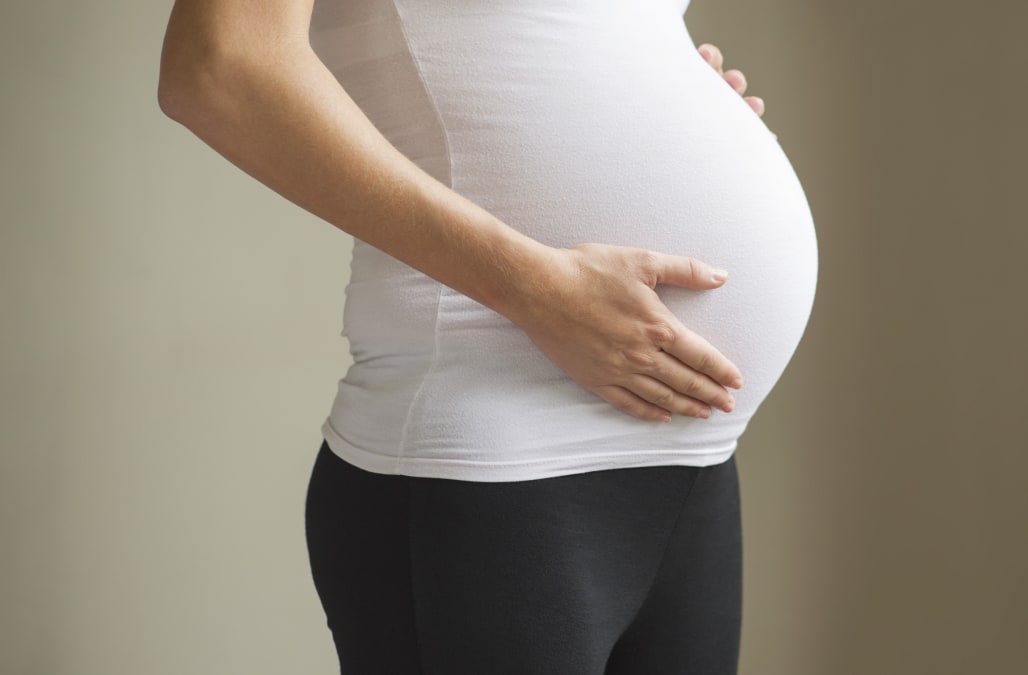1. Infants Born to Mothers With a New Coronavirus (COVID-19) - PMC
Mar 16, 2020 · This case report describes the clinical course of four live born infants, born to pregnant women with the COVID-19 infection.
A novel viral respiratory disease caused by severe acute respiratory syndrome coronavirus 2 (SARS-CoV-2), is responsible for an epidemic of the coronavirus disease 2019 (COVID-19) in cases in China and worldwide. Four full-term, singleton infants ...

2. Woman sets Guinness World Record with 17-month-long pregnancy
Aug 17, 2016 · Nevertheless, Wang is now in good physical condition. The baby weighs 3.8 kilograms. She says she will have the C-section by the 18th month. ( ...
A woman from China’s central Hunan province recently set a Guinness World Record with her 17-month-long--and counting--pregnancy, local media reported on Aug. 16.
3. The effect of medical and operative birth interventions on child health ...
Children born by spontaneous vaginal birth had fewer short‐ and longer‐term health problems, compared with those born after birth interventions.
Spontaneous vaginal birth rates are decreasing worldwide, while cesarean delivery, instrumental births, and medical birth interventions are increasing. Emerging evidence suggests that birth interventions may have an effect on children's health. ...

4. Chinese woman gives birth after claiming 17-month-long pregnancy
Aug 22, 2016 · A woman from Hunan, China, was pregnant for a record-breaking 17 months, according to People's Daily Online; she reportedly got pregnant in February 2015.
She reportedly got pregnant in February 2015 and she had still not given birth by mid-August this year.

5. Impact of Covid-19 in pregnancy on mother's psychological status and ...
Nov 4, 2020 · Evidence concerning the long-term impact of Covid-19 in pregnancy on mother's psychological disorder and infant's developmental delay is unknown.
Evidence concerning the long-term impact of Covid-19 in pregnancy on mother’s psychological disorder and infant’s developmental delay is unknown. This study is a longitudinal single-arm cohort study conducted in China between May 1 and July 31, 2020. Seventy-two pregnant patients with Covid-19 participated in follow-up surveys until 3 months after giving birth (57 cases) or having abortion (15 cases). We collected data from medical records regarding Covid-19, delivery or abortion, testing results of maternal and neonatal specimens, and questionnaires of quarantine, mother–baby separation, feeding, and measuring of mothers’ mental disorders and infants’ neurobehavioral disorders. All cases infected in the first trimester and 1/3 of cases infected in the second trimester had an abortion to terminate the pregnancy. 22.2% of pregnant patients were suffering from post-traumatic stress disorder or depression at 3 months after delivery or induced abortion. Among 57 live births, only one neonate was positive of nucleic acid testing for throat swab, but negative in repeated tests subsequently. The median duration of mother–baby separation was 35 days (interquartile range 16 to 52 days). After the termination of maternal quarantine, 49.1% of mothers chose to prolong the mother–baby separation (median 8 days; IQR 5 to 23 days). The breastfeeding rate was 8.8% at 1 week after birth, 19.3% at the age of 1 month, and 36.8% at the age of 3 months, respectively. The...

6. Iron Deficiency and Other Types of Anemia in Infants and Children
Feb 15, 2016 · Iron deficiency anemia, which can be associated with cognitive issues, is prevented and treated with iron supplements or increased intake of dietary iron.
Anemia, defined as a hemoglobin level two standard deviations below the mean for age, is prevalent in infants and children worldwide. The evaluation of a child with anemia should begin with a thorough history and risk assessment. Characterizing the anemia as microcytic, normocytic, or macrocytic based on the mean corpuscular volume will aid in the workup and management. Microcytic anemia due to iron deficiency is the most common type of anemia in children. The American Academy of Pediatrics and the World Health Organization recommend routine screening for anemia at 12 months of age; the U.S. Preventive Services Task Force found insufficient evidence to assess the benefits vs. harms of screening. Iron deficiency anemia, which can be associated with cognitive issues, is prevented and treated with iron supplements or increased intake of dietary iron. The U.S. Preventive Services Task Force found insufficient evidence to recommend screening or treating pregnant women for iron deficiency anemia to improve maternal or neonatal outcomes. Delayed cord clamping can improve iron status in infancy, especially for at-risk populations, such as those who are preterm or small for gestational age. Normocytic anemia may be caused by congenital membranopathies, hemoglobinopathies, enzymopathies, metabolic defects, and immune-mediated destruction. An initial reticulocyte count is needed to determine bone marrow function. Macrocytic anemia, which is uncommon in children, warrants subsequent eval...

7. [PDF] Uniparental Disomy 14 (UPD14) - RareChromo.org
In pregnancies with mUPD14, the baby's slow growth may be noted, typically in the last three months. Premature labour and birth is frequent, with four out of ...
8. China woman who survived husband's attempted murder in cliff ...
Sep 22, 2024 · On September 17, Wang posted on Weibo that she had given birth to a son and included a photo of herself with the baby: “My son and I are safe.
Son born on September 17 during Mid-Autumn Festival, a time for family reunions under the full moon.

9. HCV in Children | HCV Guidance
All children born to HCV-infected women should be tested for HCV infection. Testing is recommended using an antibody-based test at or after 18 months of age. I, ...
Home › Unique Populations ›